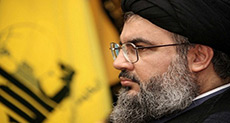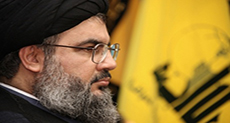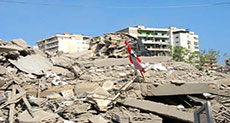America`s blind backing of “Israel” during war shredded US clout in Mideast, say analysts
Source: AFP, 11-7-2007
Sylvie Lanteaume
WASHINGTON: Washington`s unconditional and unflinching support for "Israel" during its 34-day war in Lebanon last year dealt a key blow to US influence in the Middle East, already eroded by the Iraq war, analysts say. "I do not think the US credibility in the Arab street had held much weight before the [Lebanon] war anyway. So the damage had already been done," said Middle East expert Hesham Sallam from the United States Institute for Peace.
"But what the war did was reinforce a growing perception in the region that the US will stand by `Israel` no matter what."
"Israel" killed about 1,200 Lebanese, mostly civilians, after Hizbullah captured two "Israeli" soldiers on July 12, 2006. By the war`s end, 162 "Israelis", mostly soldiers, were killed.
As the casualties mounted on both sides, France and Arab allies of the US pleaded for a cease-fire. But for weeks Washington turned a deaf ear to international pleas to exert its influence on "Israel" and bring about an end to hostilities.
Thousands fled Lebanon in a mass exodus during the fighting, and Hizbullah strongholds in the South, in Beirut and in the Bekaa Valley - as well as roads, bridges, factories and other infrastructure across the country - lay in ruins.
When US Secretary of State Condoleezza Rice finally flew to the region at the end of July 2006, she was condemned for describing the devastation as the "birth pangs of a new Middle East." Many took her remarks as an insult and further proof of the US administration`s general contempt for the Arab world.
But Rice has defended her comments, saying recently at a Paris news conference that the Lebanese "gained a great deal" from the war which ravaged parts of their country.
Since the conflict the Lebanese Army has been deployed in Southern Lebanon, and for the first time in decades it has also taken on groups of extremists holed up in Palestinian refuge camps, she says.
Rice has also seen the war as a turning point in Middle East politics, allowing moderate Arab states to align themselves with the US against the hard-line regimes in Tehran and Damascus which support Hizbullah and Hamas.
It is true that Egypt, Jordan and Saudi Arabia all condemned the initial Hizbullah attack used as a precursor to "Israel's" military wrath. But their condemnations went against the tide of opinion in their countries, and as the conflict progressed they were forced to make more measured public statements, Sallam said.
After "Israel's" deadly bombing of a UN peacekeepers` post in Southern Lebanon in late July, Rice was forced to cancel a second planned trip to Beirut as US ally Premier Fouad Siniora made it clear she was not welcome.
For Zbigniew Brzezinski, a former national security adviser for the Carter administration, the influence of the US in the Middle East has waned since the 2003 invasion of Iraq.
"We are the only superpower. But our leadership is being tested in the Middle East, and some of the things that we have done in the Middle East are contributing to a potential explosion region-wide," he said.
"And if that explosion gets out of hand, we may end up being bogged down for many years to come in a conflict that will be profoundly damaging to our capacity to exercise our power."
- Related News




